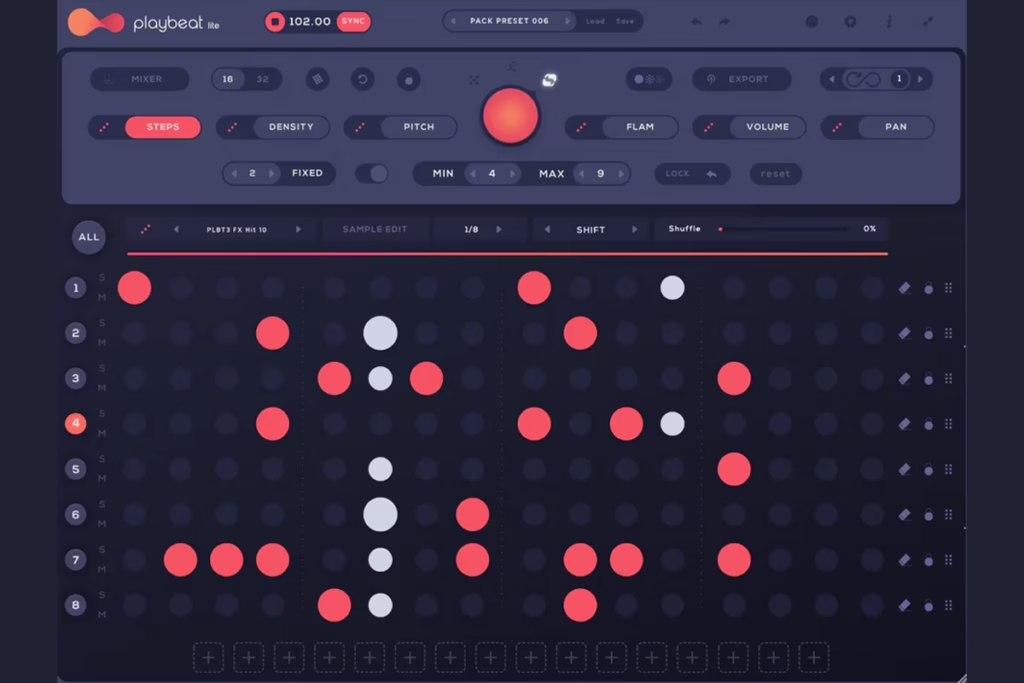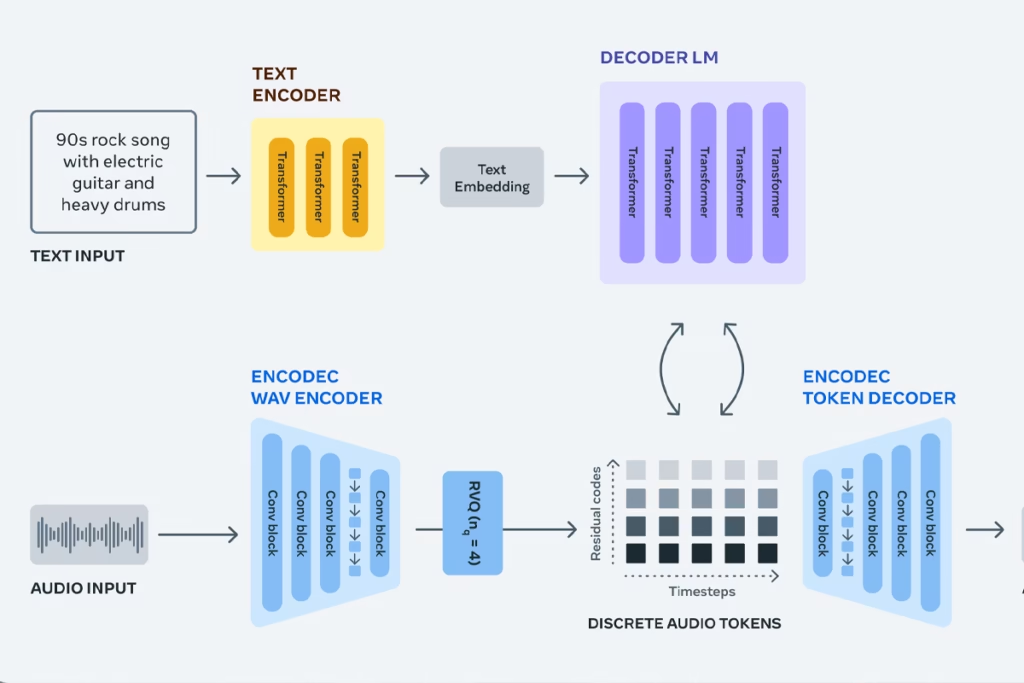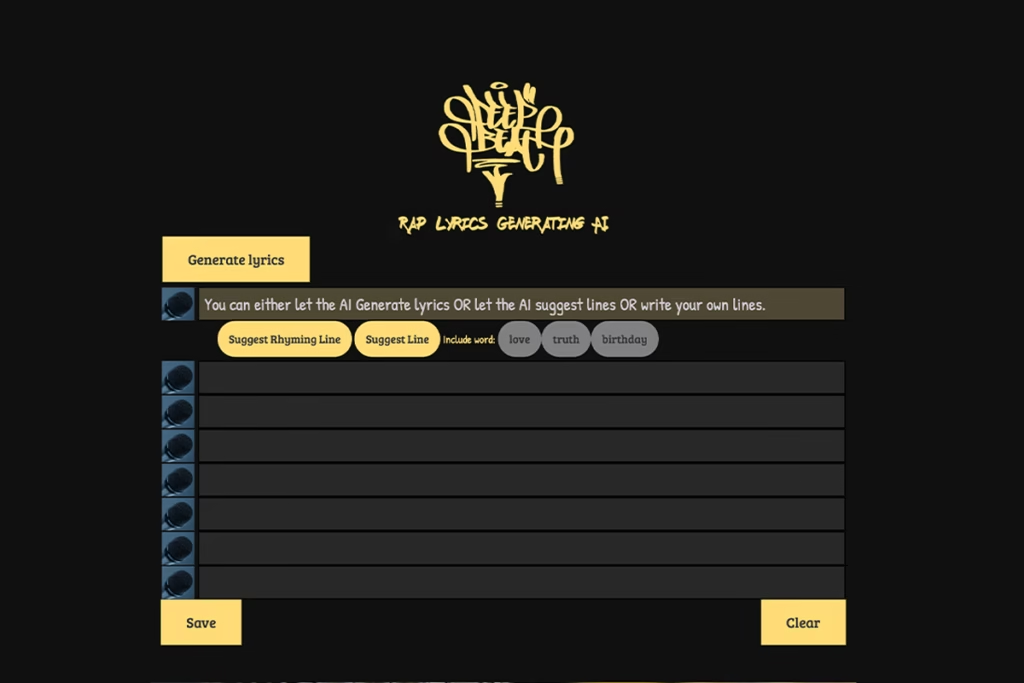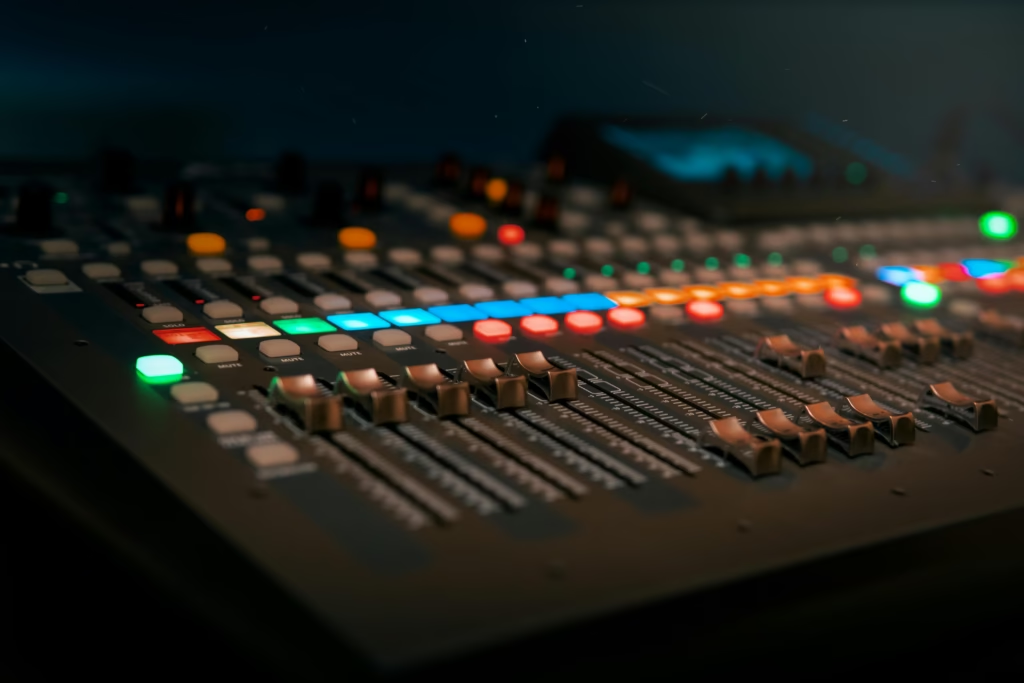The landscape of vocal production has been transformed by artificial intelligence. What once required extensive studio time and professional vocalists can now be achieved through sophisticated AI tools. Let’s explore the most powerful AI vocal solutions shaping music production in 2024.
Understanding AI Vocal Technology

Before diving into specific tools, it’s important to understand what AI vocal technology can do:
- Voice synthesis
- Voice cloning
- Pitch correction
- Harmony generation
- Voice conversion
- Vocal mixing assistance
💡 Pro Tip: Different AI vocal tools serve different purposes. Choose based on your specific needs – whether it’s creating new vocals, processing existing ones, or enhancing your productions.
1. Synthesizer V Studio Pro
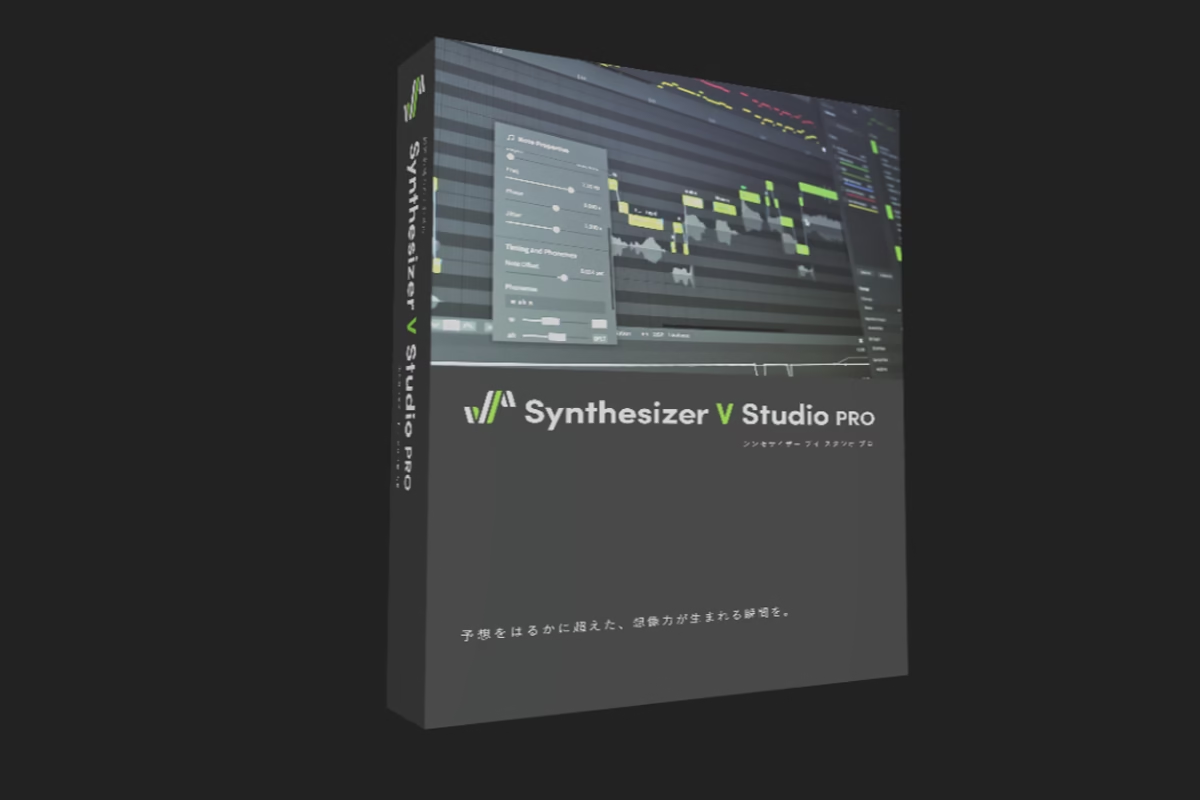
Synthesizer V Studio Pro represents the cutting edge of AI vocal synthesis technology. Originally developed by Dreamtonics, this powerful engine creates remarkably human-like singing voices using advanced neural networks. Unlike traditional vocoders, it offers unprecedented control over pitch, timing, and expression, making it possible to create realistic vocal performances from scratch.
Key Features:
- Advanced voice synthesis
- Multiple voice banks
- Cross-lingual support
- Natural expression control
- Real-time rendering
Best For:
- Electronic music producers
- Game developers
- Content creators
- Virtual artist projects
2. LALAL.AI

LALAL.AI has revolutionized vocal extraction with its proprietary Phoenix technology. This cloud-based service uses advanced neural networks to separate vocals and instruments with exceptional clarity and minimal artifacts. What sets LALAL.AI apart is its ability to handle complex audio sources while maintaining high-quality output, making it invaluable for producers and remixers.
Key Features:
- High-quality vocal extraction
- Multiple stem separation
- Low artifact production
- Batch processing
- Quick processing time
Best For:
- Remixing
- Sample creation
- Vocal isolation
- Acapella creation
3. Murf Studio

Murf Studio stands at the forefront of AI voice synthesis, offering a comprehensive platform for creating natural-sounding voiceovers and vocals. Built with an extensive library of AI voices and accents, Murf has transformed the way creators approach voice production, making it possible to generate professional-quality voice content without a recording studio.
Key Features:
- Text-to-speech conversion
- Multiple voice options
- Accent and tone control
- Commercial usage rights
- Script collaboration
Best For:
- Voice-over production
- Educational content
- Marketing materials
- Podcast production
4. Voicemod Pro
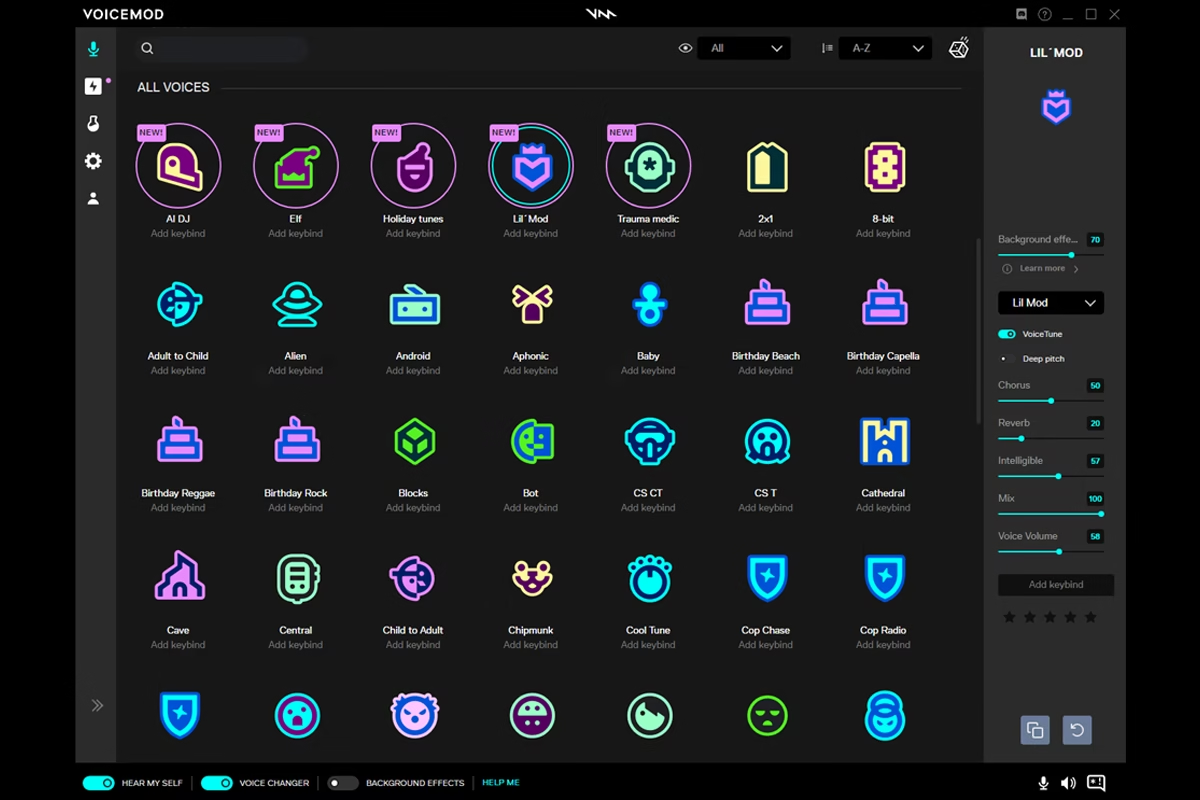
Voicemod Pro has emerged as the leader in real-time voice transformation technology. Originally popular among gamers, it has evolved into a powerful tool for content creators and musicians. Its AI-powered engine allows for instant voice modification while maintaining natural sound quality, making it perfect for live applications.
Key Features:
- Real-time voice changing
- Custom voice creation
- Sound effect integration
- Voice bank library
- Low latency processing
Best For:
- Live streaming
- Gaming content
- Creative voice work
- Social media content
5. Descript Overdub
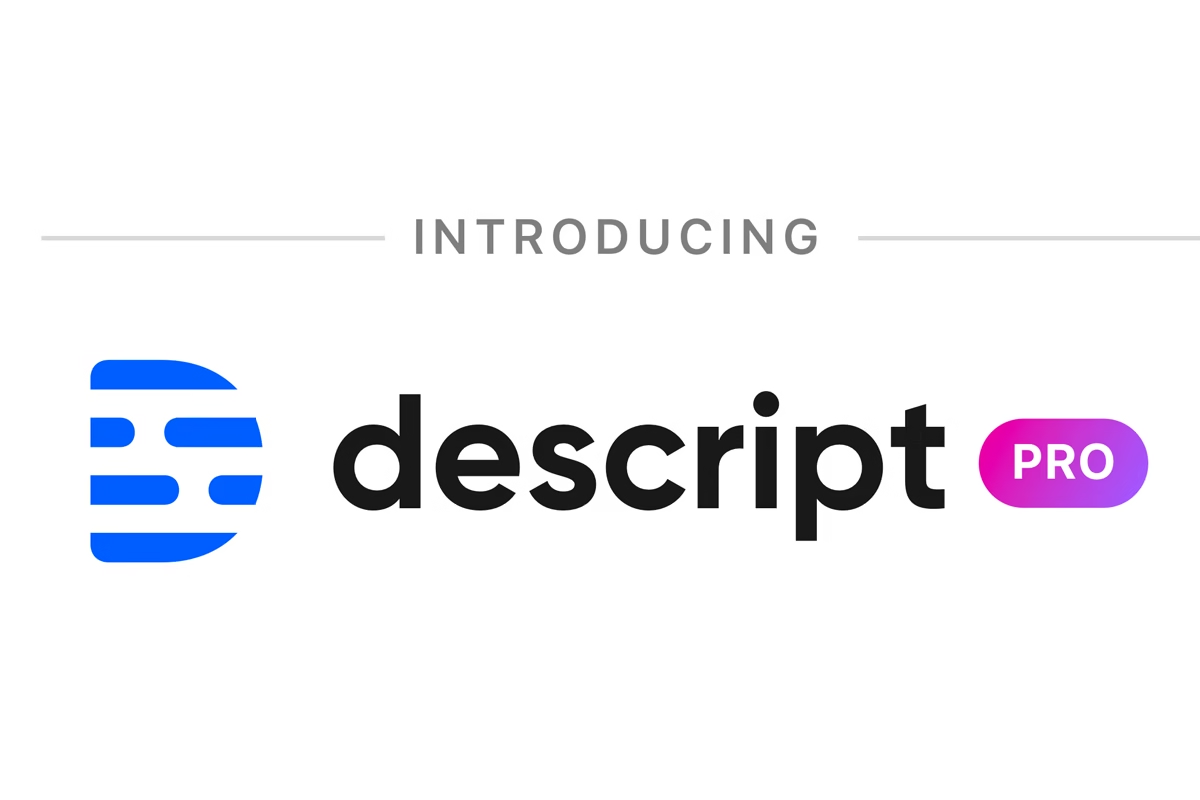
Descript’s Overdub technology represents a breakthrough in voice cloning capabilities. By training on just a few minutes of recorded audio, it can create a remarkably accurate digital voice clone that maintains the original speaker’s nuances and characteristics. This has transformed the way creators approach audio editing and content production.
Key Features:
- Voice cloning technology
- Text-to-speech conversion
- Natural intonation
- Easy editing interface
- Collaborative features
Best For:
- Podcast editing
- Video production
- Voice-over correction
- Content localization
6. AudioShake

AudioShake brings professional-grade stem separation to the masses through its innovative AI technology. Developed specifically for music industry professionals, it excels at creating clean, production-ready stems from mixed audio. Its technology has been trained on an extensive library of professional recordings, resulting in exceptional separation quality.
Key Features:
- Professional stem separation
- High-quality results
- Batch processing
- Multiple export formats
- Cloud processing
Best For:
- Professional studios
- Music publishers
- DJs and remixers
- Film/TV production
7. RipX DeepRemix
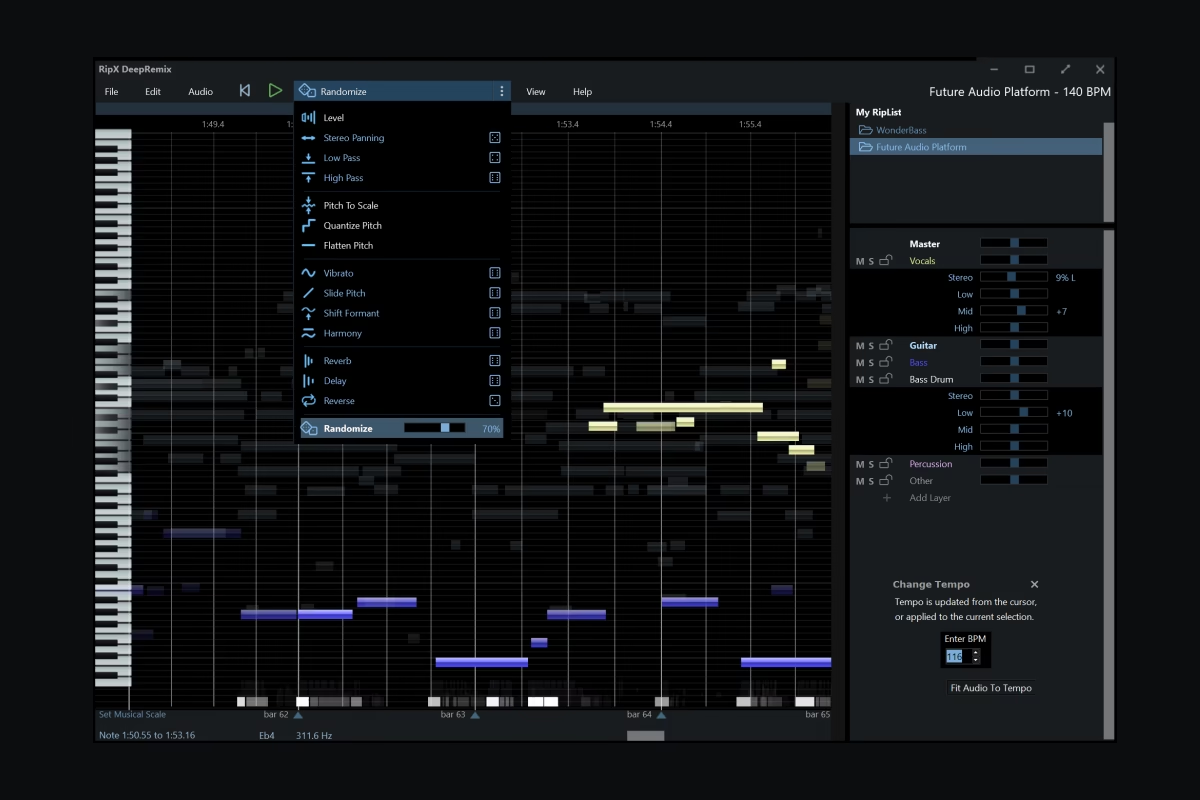
RipX DeepRemix represents Hit’n’Mix’s advanced approach to audio separation and manipulation. Using deep learning algorithms, it can identify and isolate individual elements within a mix with remarkable precision. What sets it apart is its ability to manipulate these elements while maintaining natural sound quality.
Key Features:
- Deep learning separation
- Pitch and time manipulation
- Vocal isolation
- Multi-track editing
- Real-time processing
Best For:
- Remixing
- Sample creation
- Music education
- Cover production
8. Melodyne Studio 5
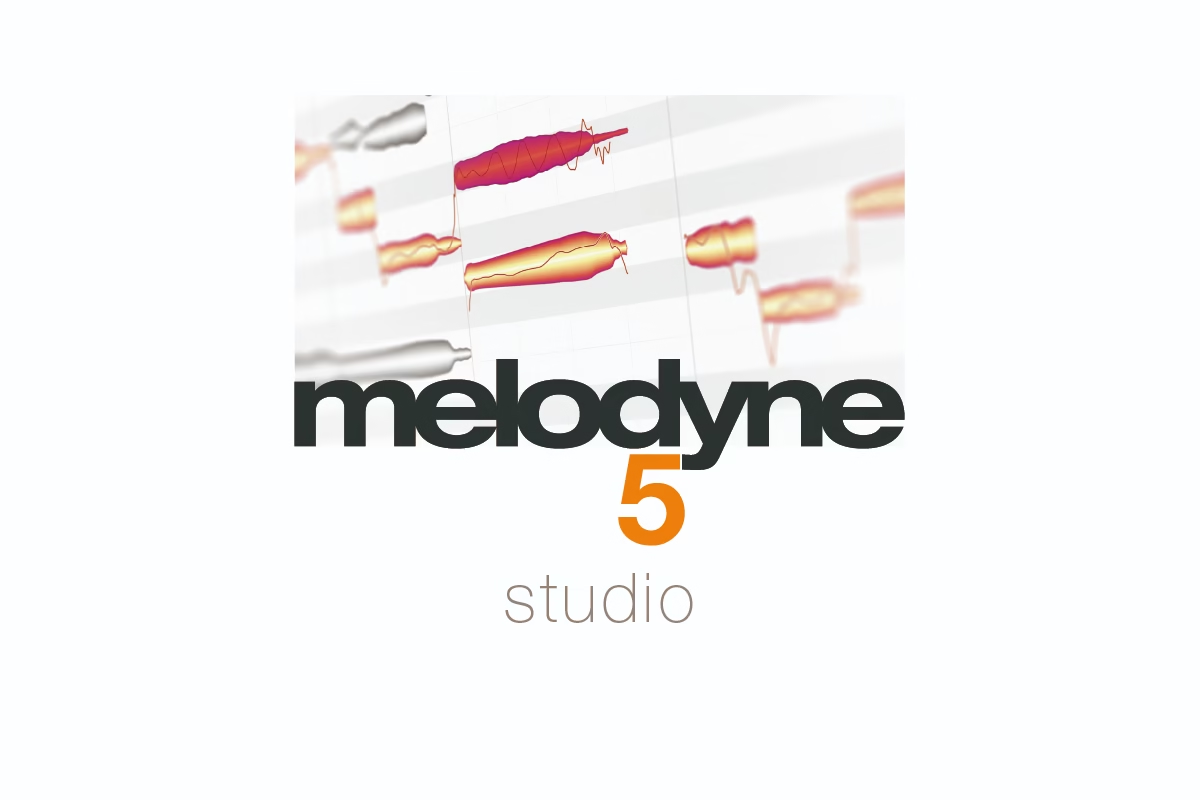
While not exclusively an AI tool, Melodyne Studio 5’s DNA technology incorporates advanced machine learning for unprecedented control over polyphonic audio. Celemony’s flagship product has long been the industry standard for professional vocal editing, and its latest version integrates AI to enhance its already powerful capabilities.
Key Features:
- DNA pitch technology
- Multitrack editing
- Sound design
- Harmony generation
- Pitch correction
Best For:
- Professional studios
- Vocal production
- Sound design
- Pitch correction
Conclusion
AI vocal tools have become indispensable in modern music production. Whether you’re creating new vocals, processing existing ones, or exploring creative possibilities, these tools offer powerful solutions for every need and budget. The key is choosing the right tool for your specific requirements and using it effectively within your production workflow.

